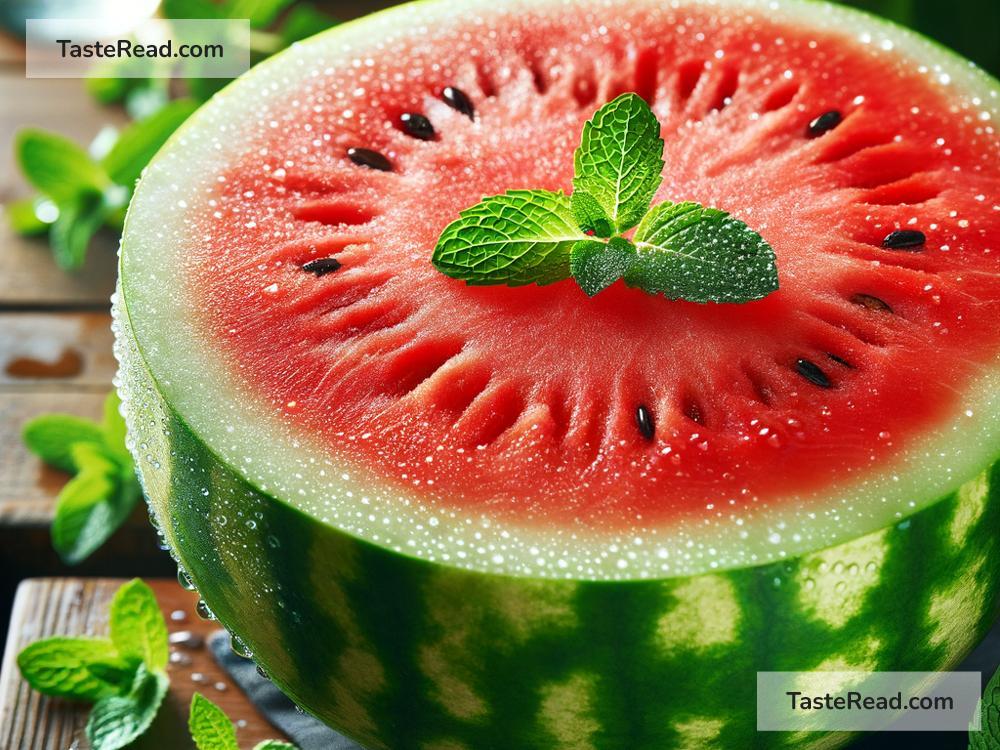The Surprising Secret Behind Watermelons and Hydration
When you think about staying hydrated on a hot summer day, the first thing that probably comes to mind is drinking a tall glass of water. But what if we told you that there’s another way to keep your body refreshed and hydrated—and it involves eating? Yep, the secret is simple: watermelons!
Watermelon is often seen as a sweet summer snack, perfect for picnics, barbecues, and beach outings. But this juicy fruit is more than just tasty—it’s a powerhouse for hydration. Let’s dive into why watermelons are so good at keeping you hydrated and why they deserve a permanent spot on your menu, especially during hot weather.
What’s Inside a Watermelon?
To understand why watermelons help with hydration, let’s look at what’s inside them. Watermelon is made up of 92% water—yes, you read that right! That means almost all of what you’re eating when you bite into a slice of watermelon is just pure water.
But wait, that’s not all. Watermelons also contain important electrolytes like potassium, magnesium, and calcium, along with vitamins like vitamin C and vitamin A. These nutrients work together to support your body’s hydration process.
Electrolytes help balance fluids in your body and keep your cells functioning properly. Without them, drinking water alone might not be enough to fully hydrate your system. Watermelons not only provide water but also give you a dose of electrolytes, making the hydration effect even stronger!
Why Hydration Matters
Before we jump into more watermelon facts, let’s quickly talk about why staying hydrated is so important. Your body is made up of about 60% water, and almost every function inside it relies on fluids. Staying hydrated helps:
- Regulate body temperature
- Support digestion
- Improve energy and focus
- Keep your muscles and joints working smoothly
- Flush out toxins
When you’re dehydrated, you might feel tired, get headaches, or have trouble concentrating. For extreme dehydration, serious problems like kidney issues or heat stroke can arise. That’s why keeping your fluid levels up is key, especially when temperatures rise or after exercising.
Watermelon vs. Water: Which Is Better?
You might wonder: “Why not just drink water instead?” Watermelon doesn’t replace water, but it complements it in a surprising way.
When you eat watermelon, you’re not just hydrating yourself—you’re also nourishing your body with essential vitamins and minerals. Watermelon contains sugar, too (but the natural kind!), which provides a quick energy boost while hydrating you.
In contrast, plain water doesn’t have any of these added nutrients. That’s why watermelon can be a better option for hydration in certain situations, like after a workout or on a hot day. Not only will it help restore lost water, but its magnesium and potassium will also replenish the electrolytes your body sweats out.
The Science Behind Watermelon Hydration
Watermelon doesn’t just “add” water to your body—it helps your body use the water more effectively. Here’s how it works:
According to research, the water in hydrating fruits like watermelon is absorbed more slowly than when you drink water. This happens because the fruit’s fiber and sugars slow down the digestive process. Slower absorption means the hydration lasts longer in your body.
Additionally, watermelon’s natural electrolytes prevent dehydration by helping your cells retain fluids. This is why eating watermelon may feel more satisfying than gulping down a glass of water when you’re thirsty.
Watermelon: The Perfect Snack for Active Days
If you’ve ever gone for a run, played sports, or spent hours outdoors, you know how easy it is to feel drained and dehydrated. Grabbing a slice of watermelon could be an ideal solution.
Thanks to its high water content and nutrients, watermelon is a great recovery food. Fitness experts often recommend eating fruits like watermelon after exercise because they help replace water and electrolytes. Plus, its natural sugar replenishes your energy levels quickly, giving you just what you need to bounce back.
Other Hydrating Fruits
While watermelon might be the hydration star, it’s not the only fruit that can help you stay refreshed. Other fruits like cucumber, oranges, strawberries, and cantaloupes also contain high amounts of water and electrolytes. That said, none of these pack quite as much water content as watermelon does (92% is hard to beat!).
The best part is that you don’t have to eat watermelons on their own. You can blend them into smoothies, add them to salads, or even turn them into juice or popsicles. The possibilities are endless!
Conclusion
Watermelon is more than a delicious summer treat—it’s a natural way to hydrate your body and provide it with essential nutrients. With 92% water content, electrolytes, and vitamins, this fruit is a hydration hero that goes beyond what a plain glass of water can do.
So, the next time you’re feeling thirsty, why not reach for a slice of watermelon? It’s fun to eat, good for your health, and an easy way to stay refreshed during warm days. Who knew hydration could be so sweet?


